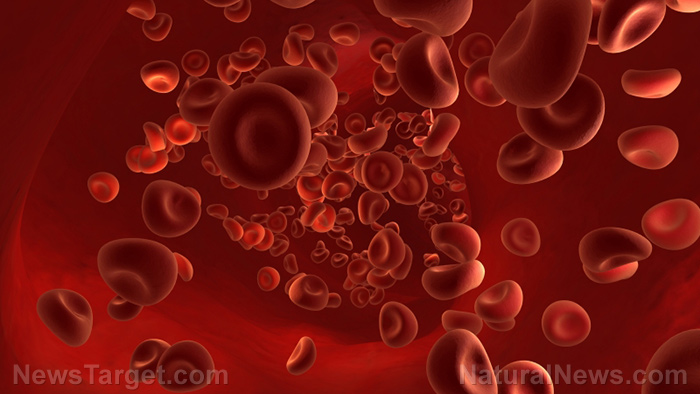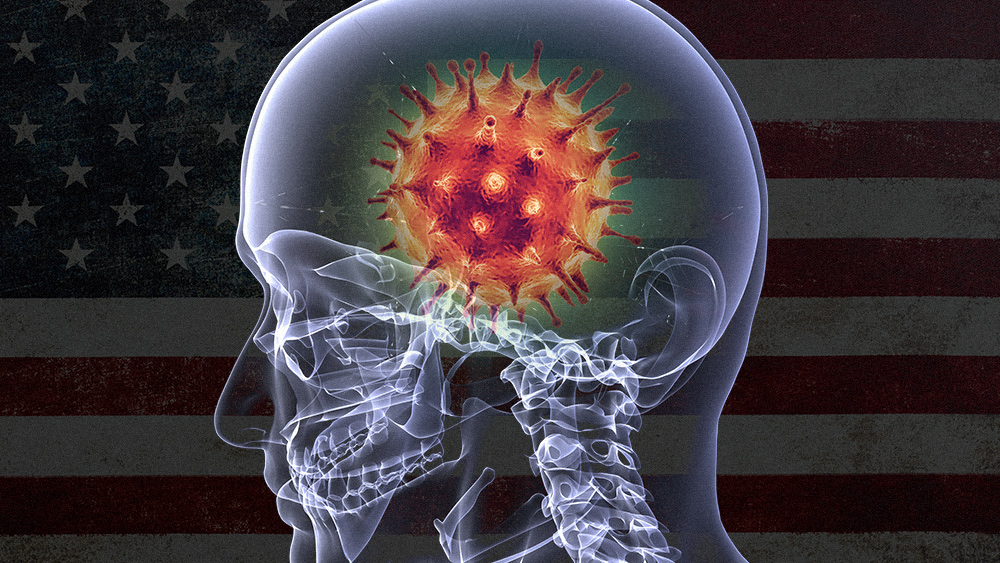Which antioxidants can be used to protect brain function?
07/01/2020 / By Evangelyn Rodriguez

Antioxidants are compounds found in plants, especially those used as food by humans. These compounds play an important role inside the body as they prevent or slow the damage caused by free radicals to cells.
Free radicals are byproducts of metabolism, specifically the breakdown of food into energy. If the body is unable to remove these unstable molecules, they can harm cells by damaging cell components. Without enough antioxidants to neutralize their harmful effects, free radicals will accumulate and cause oxidative stress.
Oxidative stress is the imbalance between free radical formation and the body’s ability to get rid of these harmful molecules through antioxidants. Studies have linked oxidative stress and antioxidant deficiency to chronic diseases, such as heart disease, cancer, stroke, diabetes and neurodegenerative diseases (NDDs).
In a recent study, researchers from Nigeria discussed scientific evidence supporting the use of plant-derived antioxidants for the management of NDDs. Their review was published in The Journal of Phytopharmacology.
Antioxidants can reduce the risk of neurodegenerative diseases
The researchers defined NDDs as ailments that disturb the brain by disrupting the normal functions of nerve cells. Common symptoms of NDDs include problems with stability, inhalation, movement, reflexes, motor skills and heartbeat.
Studies suggest that NDDs are caused by defective protein degradation and aggregation, oxidative stress, free radical generation, impaired cell energy transformation and mitochondrial dysfunction. These events are further aggravated by the production of pro-inflammatory signaling molecules.
On the other hand, antioxidants have the ability to boost the body’s defenses and sustain the structural and functional integrity of cells. They do so by scavenging free radicals and reducing their harmful effects, thus preventing oxidative stress and the onset of inflammation. Because of these activities, antioxidants have the potential to prevent NDDs.
Antioxidants have been shown to promote health by slowing down aging and fighting free radicals. Plant-based foods are excellent sources of antioxidant nutrients, such as vitamins E and C, flavonoids and polyphenols.
Vitamin C is a powerful antioxidant that can reduce oxidative damage caused by pollutants, anxiety and poor diet. Through its biological activities, vitamin C can help lower the long-term risk of NDDs.
Although NDDs have no definitive cures at present, scientists believe they can still be managed. NDD management mainly revolves around reducing symptoms and increasing the quality of life of patients. The use of natural antioxidants, either from diet or supplements, for the management of NDDs offers a variety of health benefits and has become an attractive alternative to conventional medications.
Based on scientific evidence presented by multiple studies, the researchers concluded that consumption of plant-based foods can reduce the risk of neurodegenerative diseases, particularly those caused by neuronal dysfunction.
Food-derived antioxidants to boost your brain health
The body is capable of producing powerful antioxidants, such as the “master antioxidant” glutathione, and the “vitamin-like” chemical, alpha-lipoic acid. However, the body’s ability to produce these protective molecules declines with age. Hence having a diet rich in antioxidants is important for the maintenance of good health and brain function.
Here are some examples of dietary antioxidants that can boost your brain health: (Related: Mushrooms found to be a potent source of key antioxidants.)
- Luteolin and diosmin — According to studies, these two flavonoids can reduce the levels beta-amyloid in the brain. Beta-amyloid is a protein fragment that forms harmful plaque when it accumulates. The presence of amyloid plaque is considered a hallmark of Alzheimer’s disease. Luteolin can be found in green peppers and tomatoes, while diosmin is present in many citrus fruits.
- Anthocyanins — Researchers have found that regular intake of anthocyanin-rich foods like blueberries or strawberries can delay cognitive decline by more than two years. This is because anthocyanins can fight oxidative stress and inflammation, which contribute to brain aging.
- Epicatechin — The primary flavonoid found in cocoa, epicatechin, is said to improve cognitive function in animals and humans. It also has the ability to preserve cognitive abilities, thus lowering the risk of neurodegenerative diseases like Alzheimer’s. Epicatechin can be found in green tea, apples and red wine.
- Resveratrol — A polyphenol found in red grapes, cranberries, peanuts and cocoa powder, this powerful antioxidant offers heart and brain benefits. Studies show that resveratrol can not only delay cognitive decline, but it can also improve memory function in people with mild to moderate Alzheimer’s.
- Curcumin — Also known for its anti-inflammatory activities, this active component of turmeric can help clear amyloid plaques and improve memory in Alzheimer’s patients.
Free radicals and oxidative stress are implicated in the development of chronic health problems, such as neurodegenerative diseases. To prevent cognitive decline and brain aging, eat plenty of fruits and vegetables, which are excellent sources of protective and brain-boosting antioxidants.
Sources include:
PhytoPharmaJournal.com [PDF]
Tagged Under: alternative medicine, antioxidants, brain function, brain health, cognitive function, disease prevention, food cures, food is medicine, functional food, natural cures, natural medicine, neurodegenerative diseases, phytonutrients, research
RECENT NEWS & ARTICLES
BrainFunction.News is a fact-based public education website published by Brain Function News Features, LLC.
All content copyright © 2018 by Brain Function News Features, LLC.
Contact Us with Tips or Corrections
All trademarks, registered trademarks and servicemarks mentioned on this site are the property of their respective owners.


















